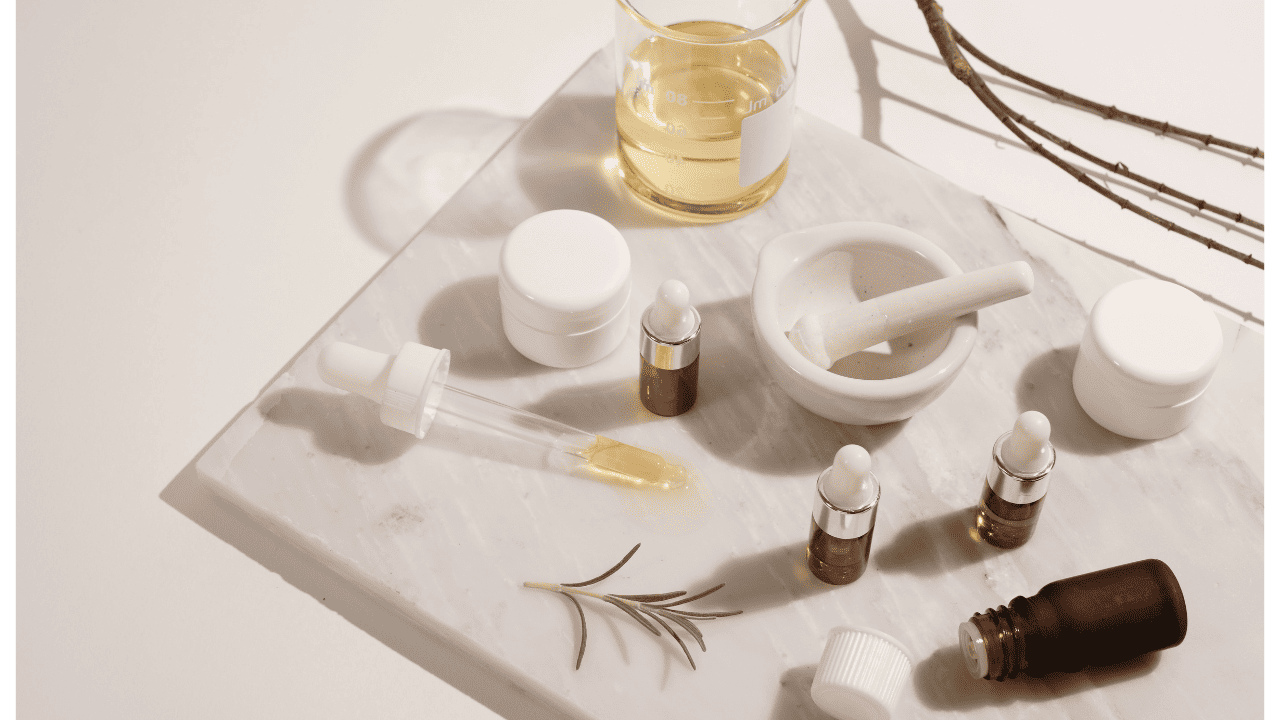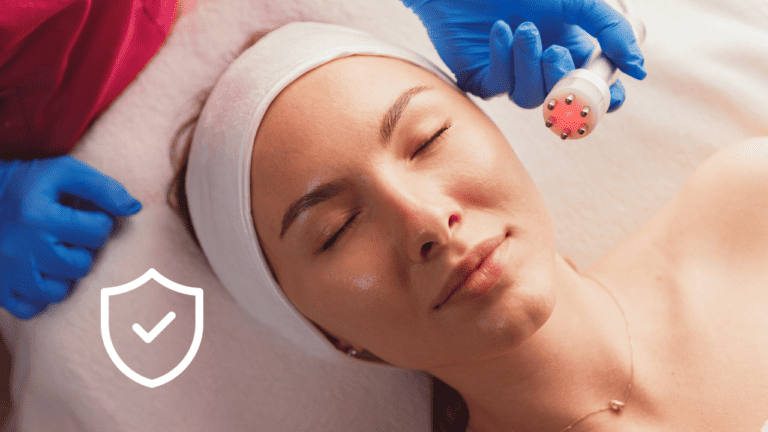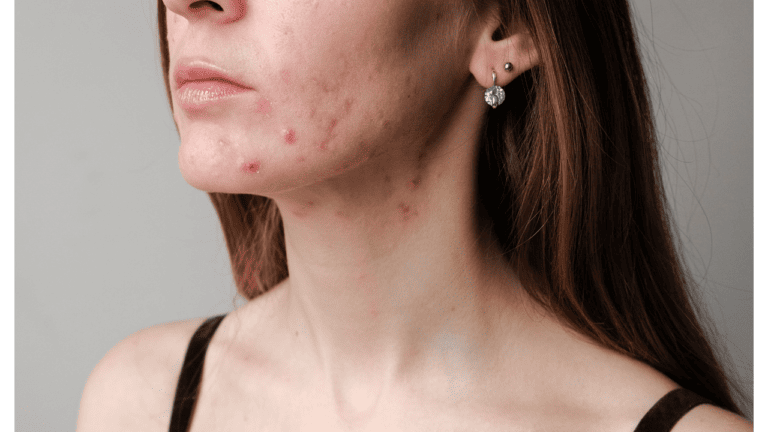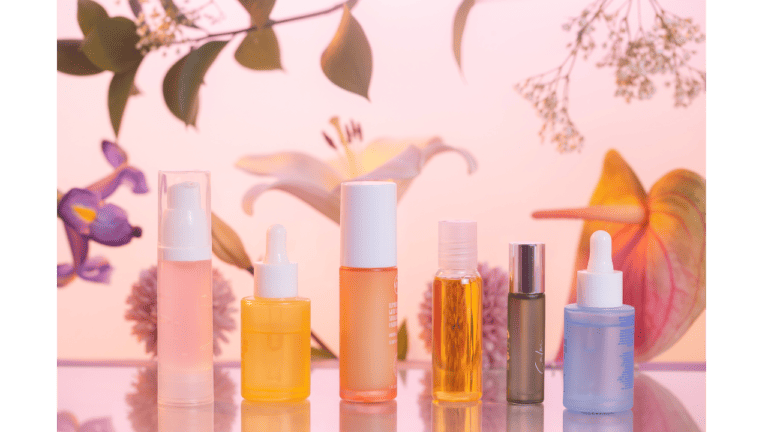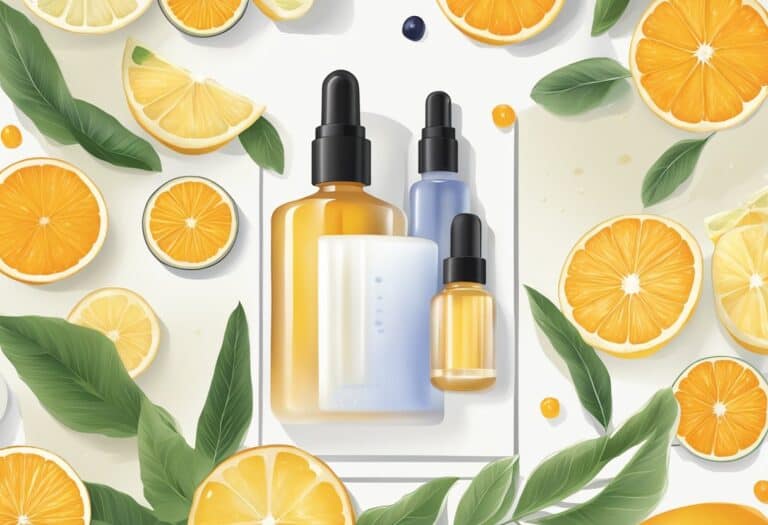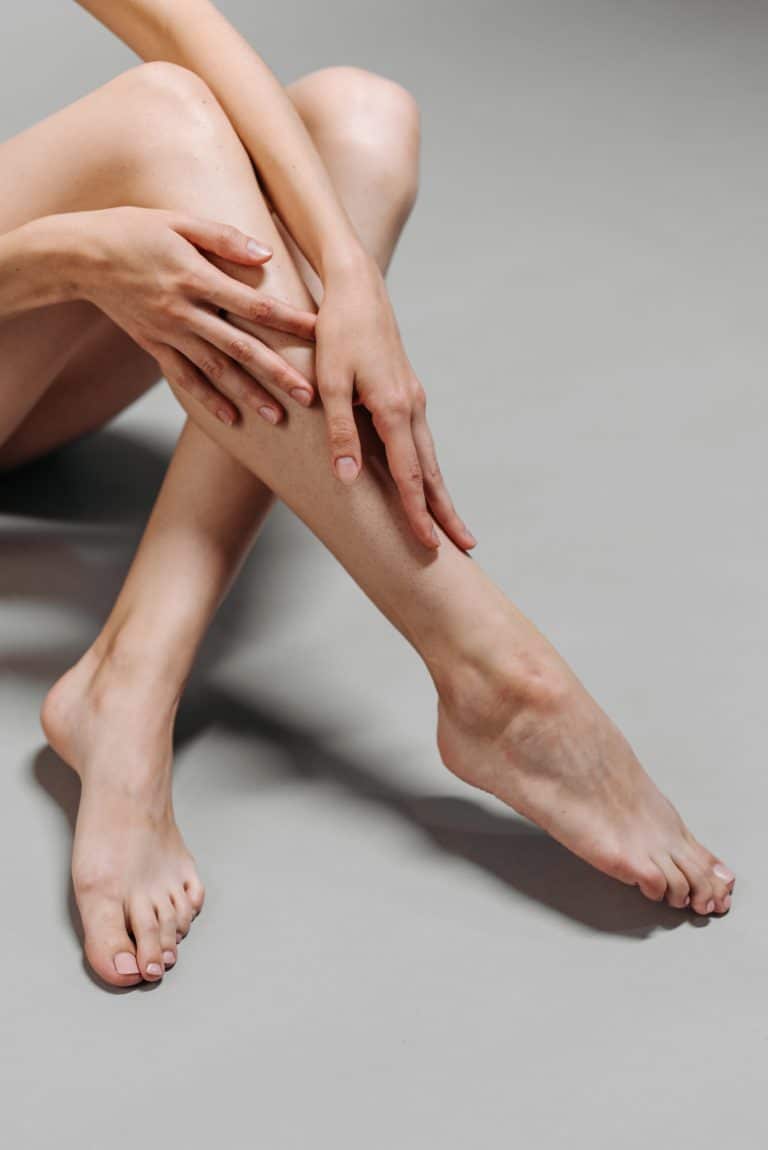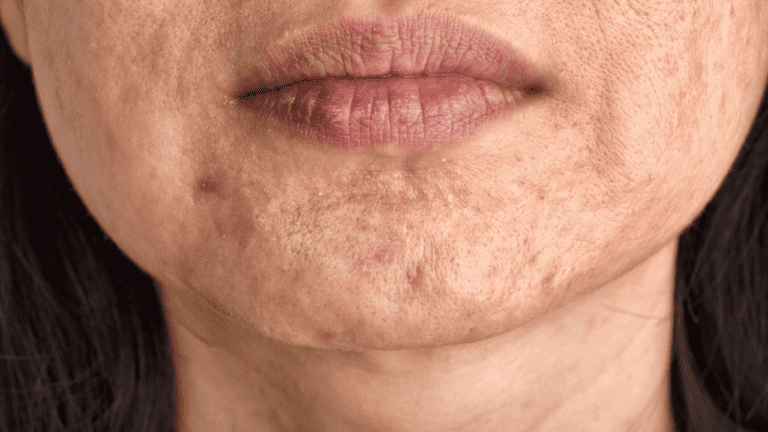Skincare products are an essential part of many people’s daily routines. From cleansers to moisturizers, these products are designed to help maintain healthy and youthful-looking skin. But have you ever wondered how these products are made? In this article, we will explore the process of creating skincare products, from understanding the ingredients used to the manufacturing and packaging processes.

Understanding Skincare Product Ingredients
To understand how skincare products are made, it is important to first understand the ingredients used. Skincare products may contain a variety of ingredients, including active ingredients, preservatives, and fragrances. Active ingredients are the ingredients that provide the intended benefits of the product, such as reducing wrinkles or brightening the skin. Preservatives are used to prevent the growth of bacteria and other microorganisms, while fragrances are added to enhance the product’s scent.
The Science of Skincare Formulation
Once the ingredients have been selected, the next step is to formulate the product. Skincare formulation is a science that involves carefully balancing the ingredients to ensure that the product is safe, effective, and stable. This process may involve testing the product’s pH levels, viscosity, and other properties to ensure that it meets the desired specifications. Once the formulation is complete, the product can be manufactured and packaged for sale.
Key Takeaways
- Skincare products contain a variety of ingredients, including active ingredients, preservatives, and fragrances.
- Skincare formulation is a science that involves carefully balancing the ingredients to ensure that the product is safe, effective, and stable.
- Once the formulation is complete, the product can be manufactured and packaged for sale.
Understanding Skincare Product Ingredients

When it comes to skincare products, understanding the ingredients is important to determine which product is right for you. In this section, we will discuss key ingredients, the difference between natural and synthetic ingredients, and the role of concentration in product efficacy.
Key Ingredients and Their Benefits
Skincare products contain a variety of ingredients that serve different purposes. Some common ingredients include antioxidants, retinol, vitamin C, collagen, and hyaluronic acid.
Antioxidants, such as vitamin E and green tea extract, help protect the skin from free radicals and environmental stressors. Retinol, a derivative of vitamin A, can help reduce the appearance of fine lines and wrinkles. Vitamin C is a powerful antioxidant that can brighten the skin and reduce hyperpigmentation. Collagen is a protein that helps keep the skin firm and elastic. Hyaluronic acid is a humectant that can help hydrate the skin.
Natural vs. Synthetic Ingredients
Skincare products can contain both natural and synthetic ingredients. Natural ingredients, such as botanical extracts and essential oils, are derived from plants and can provide a range of benefits for the skin. Organic ingredients are natural ingredients that have been grown without the use of pesticides or synthetic fertilizers.
Synthetic ingredients, on the other hand, are created in a lab and can mimic the effects of natural ingredients. Synthetic ingredients can be more stable and consistent than natural ingredients, but they may also be associated with potential side effects.
The Role of Concentration in Product Efficacy
The concentration of an ingredient can also affect its efficacy. Skincare products typically list ingredients in order of concentration, with the highest concentration listed first. A higher concentration of an ingredient may provide more noticeable results, but it can also increase the risk of irritation or side effects.
In conclusion, understanding the ingredients in skincare products can help you make informed decisions about which products to use. By knowing the benefits of key ingredients, the difference between natural and synthetic ingredients, and the role of concentration in product efficacy, you can choose products that are best suited for your skin type and concerns.
The Science of Skincare Formulation

Skincare products are made through a meticulous process of formulation, lab testing, and research. The formulation process involves a formulator who is responsible for creating the perfect blend of ingredients that will provide the desired effect on the skin. The formulator must take into consideration the properties of each ingredient and how they will interact with each other to create a stable and effective product.
Creating the Perfect Blend
The perfect blend of ingredients is crucial to the success of a skincare product. The formulator must carefully select each ingredient based on its properties and how it will interact with the other ingredients in the formula. For example, emulsions require a careful balance of oil and water-based ingredients to ensure the product has a smooth and consistent texture. Anhydrous formulas, on the other hand, do not contain water and require different ingredients to create a stable and effective product.
Ensuring Stability and Safety
Once the perfect blend of ingredients has been created, the product must undergo lab testing to ensure its stability and safety. Stability testing involves exposing the product to various conditions, such as heat and light, to determine how it will hold up over time. Safety testing involves assessing the product’s potential to cause irritation or other adverse reactions on the skin. The testing process ensures that the product is safe and effective for use on the skin.
Innovation in Skincare Science
Innovation in skincare science is constantly pushing the boundaries of what is possible in skincare formulation. Research into new ingredients and technologies is ongoing, with the goal of creating products that are even more effective and beneficial for the skin. The INCI (International Nomenclature of Cosmetic Ingredients) system is used to identify and standardize the ingredients used in skincare products, allowing formulators to create innovative and effective products with confidence.
In conclusion, the science of skincare formulation is a complex and meticulous process that requires expertise in chemistry, lab testing, and research. The perfect blend of ingredients, stability, and safety are all crucial to creating effective skincare products that provide real benefits to the skin. With ongoing innovation and research, the future of skincare science looks bright.
Manufacturing and Packaging Processes

Skincare products are made through a complex process that involves several stages, including research and development, manufacturing, packaging, and quality control. The manufacturing and packaging processes are critical stages that determine the quality, effectiveness, and safety of the final product.
From Laboratory to Production
The first step in manufacturing skincare products is research and development. Scientists and formulators work together to develop new formulas or improve existing ones. Once the formula is finalized, it moves to the production stage. The manufacturing process involves mixing and blending the ingredients in a controlled environment to ensure consistency and quality. The process may vary depending on the type of product, but it typically involves heating, cooling, and emulsifying the ingredients.
Packaging Design and Sustainability
Packaging plays a crucial role in the skincare industry. It not only protects the product but also serves as a marketing tool. The design of the packaging should be eye-catching, informative, and sustainable. Many skincare companies are now adopting sustainable packaging practices to reduce waste and minimize their carbon footprint. Sustainable packaging materials include glass, metal, and biodegradable plastics.
Quality Control and Good Manufacturing Practices
Quality control is a critical aspect of the manufacturing process. Skincare companies must adhere to Good Manufacturing Practices (GMPs) to ensure that their products are safe, effective, and consistent. GMPs are a set of guidelines that outline the minimum requirements for the manufacturing, packaging, labeling, and distribution of products. Skincare companies must also conduct regular testing to ensure that their products meet the required standards for purity, potency, and safety.
In conclusion, the manufacturing and packaging processes are critical stages in the production of skincare products. Skincare companies must adhere to Good Manufacturing Practices and use sustainable packaging materials to ensure that their products are safe, effective, and environmentally friendly.
Bringing Skincare Products to Market
When it comes to bringing skincare products to market, there are several factors that come into play. From marketing and consumer education to distribution channels and accessibility, each step is crucial in ensuring that the product is successful in the beauty industry.
The Importance of Marketing in Skincare
Marketing plays a significant role in the success of skincare products. It involves creating a brand image, developing a marketing strategy, and promoting the product to the target audience. Effective marketing can increase brand awareness, build trust, and ultimately lead to increased sales.
In the beauty industry, marketing is often focused on the benefits of the product. Skincare companies use various tactics such as celebrity endorsements, social media campaigns, and product demonstrations to promote their products. However, it is important to note that marketing should be honest and not make exaggerated or false claims.
Consumer Education and Product Use
Consumer education is crucial in the skincare industry. Consumers need to understand the benefits of the product and how to use it effectively. Skincare companies often provide instructions on how to use the product and the benefits of each ingredient.
It is also important to educate consumers on the importance of a skincare routine. Skincare routines should be tailored to the individual’s skin type and concerns. Consumers should be encouraged to seek advice from a skincare professional to ensure that they are using the right products for their skin.
Distribution Channels and Accessibility
Distribution channels play a crucial role in making skincare products accessible to consumers. Skincare products can be sold through various channels such as online stores, brick and mortar stores, and specialty stores. Each channel has its advantages and disadvantages, and companies need to choose the right distribution channel to reach their target audience.
Accessibility is also important in the skincare industry. Skincare products should be available to consumers at an affordable price point. Companies should also consider the environmental impact of their products and packaging.
In conclusion, bringing skincare products to market involves several steps, including marketing, consumer education, and distribution channels. Each step is crucial in ensuring that the product is successful in the beauty industry. Companies should focus on providing honest marketing, educating consumers, and making their products accessible to everyone.
Frequently Asked Questions
What is the process involved in manufacturing creams and moisturizers?
The process of manufacturing creams and moisturizers involves several steps. The first step is to mix the ingredients together in a large mixing vessel. The ingredients are then heated and mixed until they reach the desired consistency. The mixture is then cooled and transferred to a filling machine, which fills the product into jars or bottles. Finally, the jars or bottles are labeled, packaged, and shipped.
Can you explain the typical steps in beauty product manufacturing?
Beauty product manufacturing typically involves several steps. The first step is to develop a formula for the product. This involves selecting the ingredients and determining the appropriate ratios for each ingredient. The next step is to mix the ingredients together in a large mixing vessel. The mixture is then heated and mixed until it reaches the desired consistency. The product is then filled into jars or bottles using a filling machine. Finally, the jars or bottles are labeled, packaged, and shipped.
What does cosmetic manufacturing entail and how is it regulated?
Cosmetic manufacturing involves the production of products that are applied to the skin, hair, or nails for the purpose of enhancing appearance. Cosmetic manufacturing is regulated by the U.S. Food and Drug Administration (FDA). The FDA requires that cosmetic manufacturers follow Good Manufacturing Practices (GMPs) to ensure that their products are safe, pure, and effective. GMPs include requirements for personnel, facilities, equipment, materials, production, and quality control. Cosmetic manufacturers must also comply with labeling requirements, which include listing the ingredients in the product and ensuring that the labeling is accurate and not misleading.
